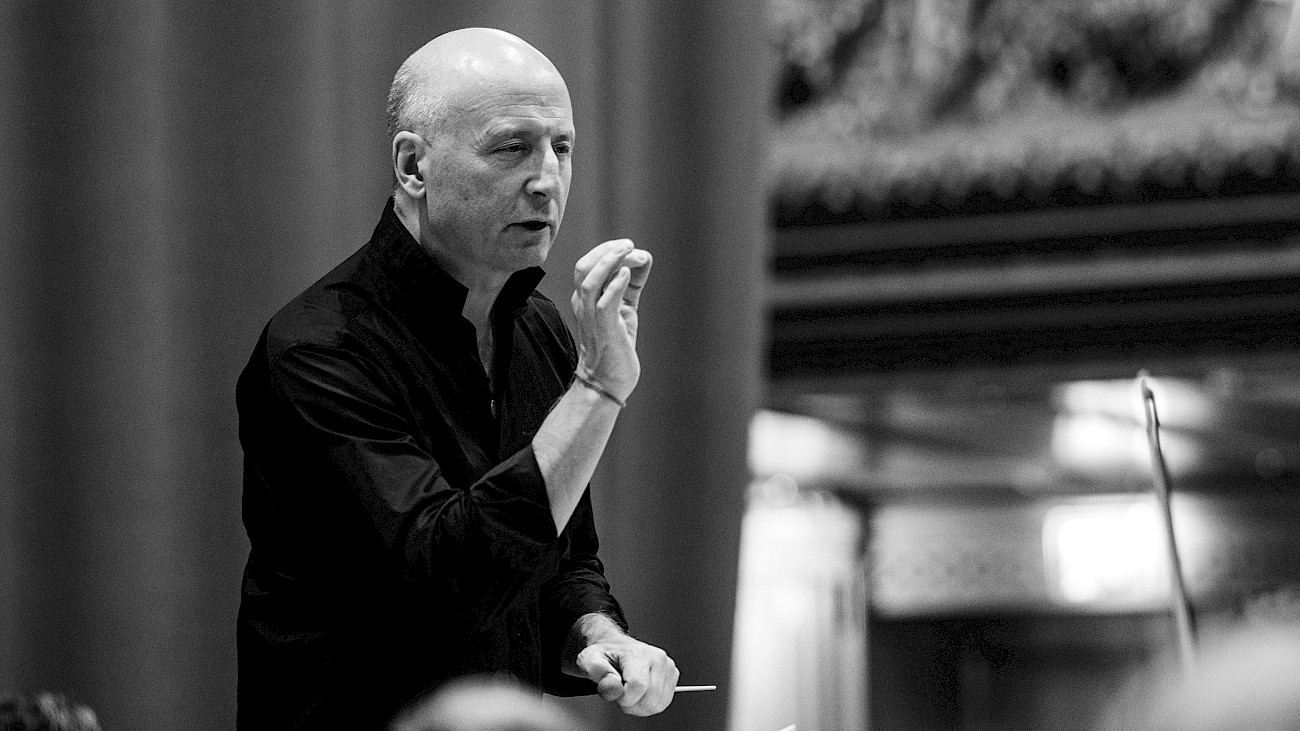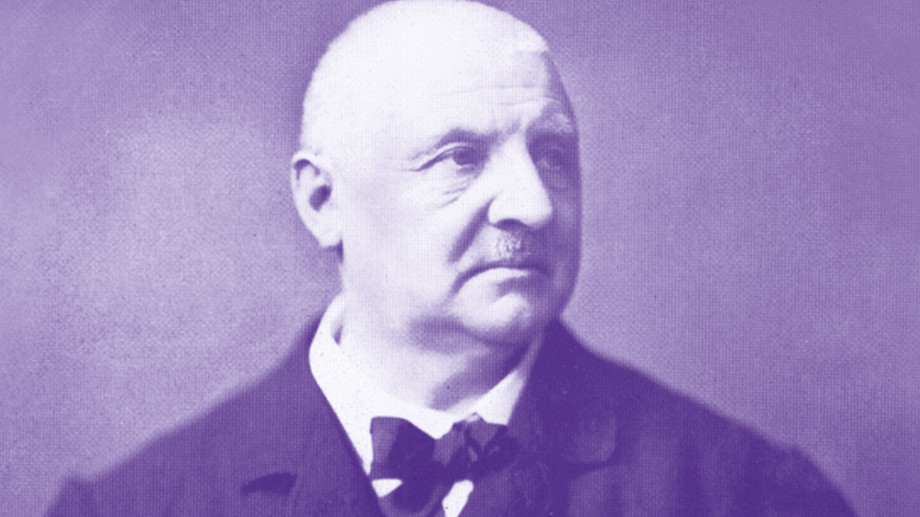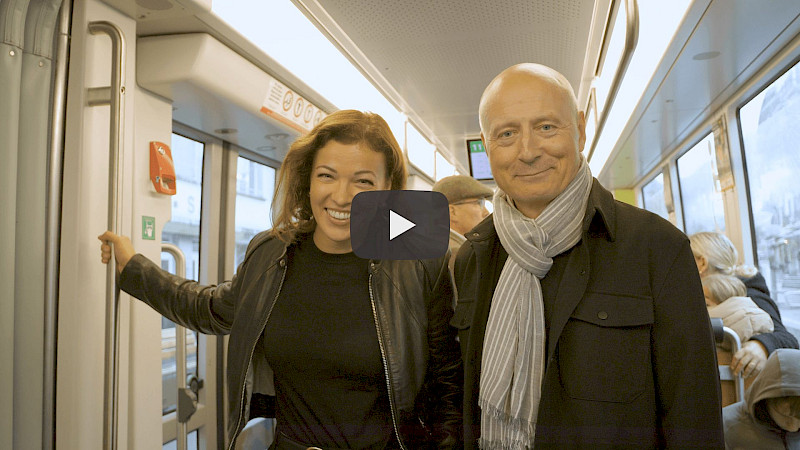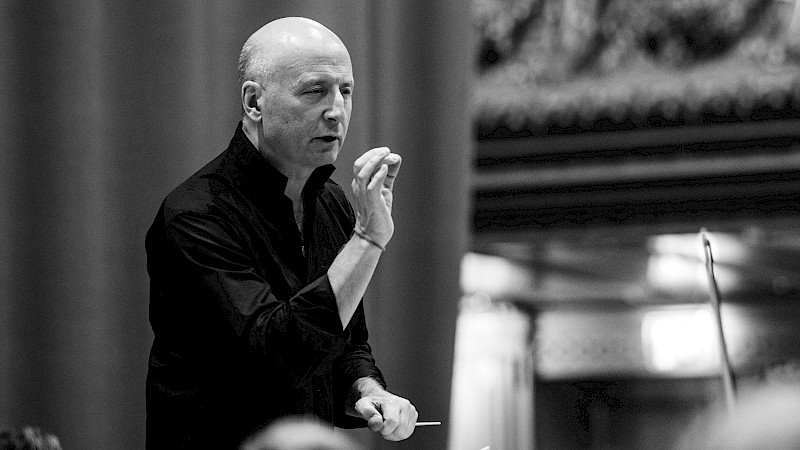
The old friend
Paavo Järvi is currently tackling Anton Bruckner's symphonies with the Tonhalle Orchestra Zurich. Here he talks about Bruckner in Soviet Estonia, Swedish and Swiss audiences and the special Eighth Symphony.
Paavo, why is Bruckner a good way to arrive at the Grosse Tonhalle?
I think it's a perfect way. Bruckner is a kind of essence for symphony orchestras. And it's very interesting to see how Bruckner's music has gone through many ups and downs in history. I have the feeling that there is a great deal of interest in Bruckner again because we have gained enough distance from the old views. Not only in music, but also in society in general. Conventions and old convictions are being reconsidered. Bruckner's music is very challenging for the whole orchestra. It's important to have a good architecture that really shows the quality of the orchestra and the individual registers. For me, this is the perfect way to experience this orchestra. But also the renovated hall.
Can you remember when and how you first really appreciated Bruckner's music
?
When I was growing up - and I grew up in Estonia - Bruckner's music was not really part of the general repertoire. Estonia was of course occupied by the Russians at the time, so it was a Soviet country. And most musicians in Estonia and large parts of musical life were very much influenced by this. The "Iron Curtain" did the rest by focussing everything on the Soviet Union. The musical direction was centred on Russian music and the classics. Of course: Bach, Haydn, Mozart! But Bruckner wasn't played very often. And Bruckner generally had a kind of perception problem. His music was considered too long, too uneventful and a bit boring - and somehow not as good as Brahms or other contemporaries. So I would describe it like this: Even though we listened to and studied his music, we didn't grow up with a great love for it. As I grew up in a family of conductors, I was always exposed to very different repertoire. I really fell in love with Bruckner's music when I was at school - and then really obsessively. I was the same with Mahler's compositions. And I conducted Bruckner for the first time in Malmö, Sweden: the Third Symphony. I love this Third. I've always loved it, partly because of the recordings with George Szell and the Cleveland Orchestra. I listened to it a lot when I was a little boy. That's why I really want to conduct it. And once you've conducted this symphony, you realise - okay, this is just the beginning, I want to conduct the others as well. And that's what happened. It all developed slowly but surely at the time when I was music director in Malmö (from 1994 to 1997).
I recently spoke to maestro Herbert Blomstedt about Bruckner. And he recalled the first time he conducted Bruckner in Stockholm: There was no audience for Bruckner. How do you intend to reach the audience in Zurich?
I think we will reach this audience, or I am convinced that it already exists. Because I remember when we played the Seventh Symphony, the audience response was very good, the concerts were well attended. I also think that Bruckner fits so perfectly into the DNA of this orchestra. It has an intuitive understanding of this music and also the necessary technical and tonal skills that it requires. Even though we played the Seventh here together for the first time, it was like visiting an old friend. We speak the same language, we understand each other. And that just goes to show that all these compositions come from the same world. If you take the music of Richard Strauss, Mahler and of course Bruckner, then you can trace it back to Bach, Mozart, Haydn, Beethoven, Schubert, Brahms and Schumann. There is a connection between all of them. That's obvious to me when you play Bruckner's music. Then you feel that you know this language. You may not know the piece yet, but you understand the language.
"In Bruckner's oeuvre, the Eighth is the most unusual symphony, because he was satisfied with it."
You have chosen Bruckner's Eighth Symphony as your next challenge. Why this one in particular?
For many, this is the most important symphony. I even know people who say it is the greatest symphony ever written. Such a superlative is of course difficult and should be taken with a pinch of salt, if only for the simple reason that there are so many other great symphonies - just think of Beethoven's "Eroica", Brahms' First or Mahler's Ninth, and so on. But what is indisputable: In Bruckner's oeuvre, it is the most unusual symphony, because he was satisfied with it. It is also the only one in which he used harps. He used female "images" to describe something like love - although Bruckner was known to be a rather asexual, withdrawn person. He also talks about highly atypical, un-Brucknerian things in letters relating to this symphony. For example, the beginning of the last movement: Russian Cossacks attack. Who would have guessed that in his mind? It is interesting that this symphony seems to be about more earthly things - regardless of its outstanding musical inspiration. Because this symphony has an incredible grandeur in its design, its structure. All the other symphonies still have a certain intimacy. And this is preserved in the Adagio in the best sense of the word. But in the other movements, a new awareness is palpable. That's not something you expect from Bruckner either. An awareness of where he stands and who he is. As a whole, this is a monumental work - more so than any of Bruckner's other symphonies. The Fifth comes close to this idea, but the Eighth is really his peak.
There are people who fear the length of Bruckner's symphonies. What
can you tell them?
That's something very subjective again. If something is interesting enough and if something is done well enough, then even very long concerts can seem very short. This is where the real role of the performers comes into play: with the wrong people, even short pieces can seem very long. It is the responsibility and the power of the performers to create enough momentum for an inner world, an inner dialogue. And then works don't become lengthy. Compared to a Wagner opera, which sometimes lasts five hours or longer, an 80-minute symphony is actually not very long. It also depends on how it's done and how involved you feel. But in general, the social trend of presenting things "pre-digested" and served up in small bites, just so that nobody gets bored, is also a reason why there are people who think 80 minutes is too long. But standing in front of a DJ for the same amount of time is not a problem. It's all a question of what I want to identify with. I would ask the audience not to think about the length at all. Just come, close your eyes and enjoy!
Translated with DeepL.com






